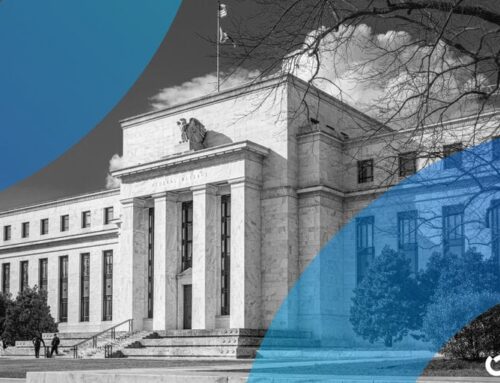As Warren Buffett prepares to retire, does his investing philosophy have a future?
May 5, 2025
Warren Buffett, the 94-year-old investing legend and chief executive of Berkshire Hathaway, has announced plans to step down at the end of this year.
His departure will mark the end of an era for value investing, an investment approach built on buying quality companies at reasonable prices and holding them for the long term.
Buffett’s approach transformed Berkshire Hathaway from a small textile business in the 1960s into a giant conglomerate now worth more than US$1.1 trillion (A$1.7 trillion).
He built his fortune backing US industry in energy and insurance and American brands, including big stakes in household names such as Coca-Cola, American Express and Apple.
At Berkshire’s annual meeting at the weekend, held in an arena with thousands of devoted investors, Buffett named Greg Abel as his successor.

Nati Harnik/AP
Abel, 62, is currently chairman and chief executive of Berkshire Hathaway Energy, as well as vice chairman of Berkshire Hathaway’s vast non-insurance operations.
He’s known for his disciplined, no-nonsense management style. The company’s board has now voted unanimously to approve the move.
This changing of the guard comes at a pivotal moment. Donald Trump’s return to the US presidency has already delivered significant economic policy shifts.
Meanwhile, questions about US economic dominance grow louder against China’s continued rise.
The ‘Oracle of Omaha’
Few names command as much respect in the world of finance as Warren Buffett. Born in Omaha, Nebraska, in 1930, Buffett displayed an early genius for numbers and investing. He bought his first stock at age 11.
His investment philosophy – buying undervalued companies with strong fundamentals – would later earn him the nickname the “Oracle of Omaha” for his uncanny ability to predict market trends and identify winning investments years before others did.
Value investing
Buffett drew his investment approach from the value investment principles of British-born US economist Benjamin Graham.
He preferred businesses with lasting advantages and a clear value proposition. Some of his key investments included insurance company GEICO, railroad company BNSF, and more recently Chinese electric vehicle maker BYD.
He avoided speculative bubbles (such as the dotcom bubble of the late 1990s and, more recently, cryptocurrencies) and preached long-term patience to investors. As he famously wrote in a 1988 letter to shareholders:
In fact, when we own portions of outstanding businesses with outstanding managements, our favorite holding period is forever.
Buffett’s guidance helped Berkshire navigate many economic booms and recessions. Over his six decades at the helm, the company delivered impressive compounded annual returns of almost 20% – virtually double those of the S&P 500 index.

photox/Imaginechina/AP
Beyond financial success, Buffett championed ethical business practices and pledged to donate more than 99% of his wealth through the Giving Pledge, which he cofounded with Bill Gates and Melinda French Gates.
Challenges to Buffett’s strategy in today’s world
In an op-ed for the New York Times in 2008, Buffett famously shared the maxim that guides his investment decisions:
Be fearful when others are greedy, and be greedy when others are fearful.
But his strategy thrived in an era of increasing globalisation, free trade, and US economic supremacy. The world has shifted since Buffett’s heyday.
There are concerns about the recent underperformance of value investing. Technology companies now dominate older industries.
This raises questions about whether those who succeed Buffett can spot the next major industry disruptors.
America first?
Trump’s return as US president heralds major changes in economic policy. Trade restrictions might hurt some of Berkshire’s international investments. However, these same policies might benefit Buffett’s US-focused investments.
The idea of US economic superiority also faces new questions. China may overtake the US economy in the 2030s. The US share of global economic output has fallen from about 22% in 1980 to about 15% today.
Buffett’s “never bet against America” mantra faces new scrutiny.
The challenges for Buffett’s successor
Abel inherits a company with about US$348 billion (A$539 billion) in cash. That’s a serious amount of capital to deploy wisely amid global economic uncertainty and Trump’s trade war.
Abel will likely maintain Berkshire’s core values while updating its approach. His challenges include:
-
Maintaining the “Buffett premium”: Abel lacks Buffett’s cult-like following among investors, which may gradually erode the additional value the market assigns to Berkshire due to Buffett’s leadership.
Without Buffett’s reputation, Abel may face increased pressure to effectively deploy Berkshire’s massive cash pile in a still-expensive stock market, where valuations are high and finding bargains is harder than ever.
-
Technological adaptation: while Berkshire has increased its technology investments over the years (including positions in Apple and Amazon), balancing its legacy holdings (such as Coca-Cola and railroads) with growth sectors (AI, renewables) remains challenging.
-
Environmental concerns: Berkshire Hathaway’s heavy reliance on coal and gas-fired utilities has drawn growing criticism as investors and regulators demand cleaner energy solutions.
-
Replicating the “golden touch”: Buffett’s genius wasn’t just in picking stocks. It was also in capital allocation, deal-making, and crisis management (for example, buying into Goldman Sachs during the global financial crisis). Can Abel replicate that?
After Buffett
Buffett’s principles – patience, intrinsic value and betting on America – are timeless. But the world has moved on. His successor must navigate geopolitical risks, technological disruption, and the rise of passive investing while preserving Berkshire’s unique culture.
The post-Buffett era represents more than just a leadership change. It’s a test of whether Buffett’s principles can survive in an increasingly short-term, technology-dominated, and geopolitically complex world.
Abel’s leadership will reveal the enduring power – or limitations – of Buffett’s philosophy.
Search
RECENT PRESS RELEASES
Related Post



